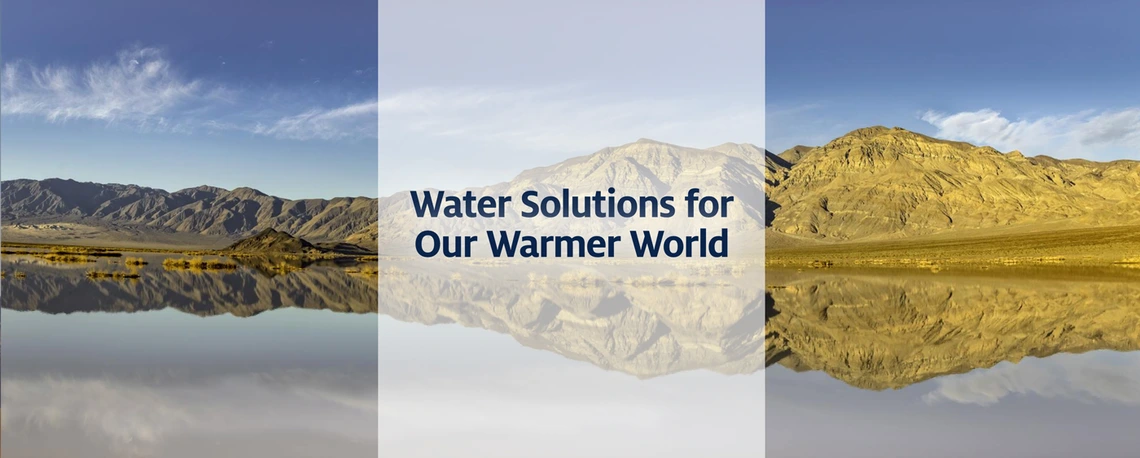Panel Discussion on Regional Water Sustainability
March 19, 2021
Image

On Wednesday, March 17, the Arizona Institutes for Resilience, in partnership with the WRRC and the Udall Center for Studies in Public Policy, hosted the first episode of the Water Solutions for Our Warmer World webinar series. This first session, “Perspectives on Regional Water Sustainability,” brought together an engaging panel from diverse backgrounds to discuss questions such as “How should we define water sustainability,” “What does sustainability look like in the Colorado River Basin,” and “What are the paths forward for more inclusive solutions?” The session moderator, Kathy Jacobs, Director of the UArizona Center for Climate Adaptation Science & Solutions, began the session by highlighting the importance of context in water management, not only in terms of geographic, economic, and policy conditions but also the diversity of lenses through which we all view water sustainability. Then, each panelist provided their personal definition of “sustainability” to frame the discussion.
After an informative, moderated dialogue that incorporated questions from the audience, each panelist made brief closing statements. WRRC Director Sharon B. Megdal emphasized that everyone is a stakeholder in water management and can influence decision-makers, calling on attendees to be active in water dialogues, education, and process. Kathryn Sorensen, Director of Research at the Kyl Center for Water Policy at Morrison Institute, noted the need to invest in Arizona’s aging infrastructure. Haley Paul, Policy Director at the National Audubon Society in Arizona, commented on the need to fight the temptation to look for the next bucket of water while not yet having done everything possible to protect the water supply we have. Former Mexican Commissioner for the IBWC Roberto Salmón Castelo asked all present to think outside the box, be creative, be innovative, and invest in research. Tim Thomure, Director of Tucson Water and City of Tucson's Interim Assistant City Manager, added to Commissioner Salmón Castelo’s comments that flexibility contributes to the solutions and that geography matters; solutions are not one size fits all. Chairman Timothy Williams of the Fort Mojave Indian Tribe provided the last statement, leaving the audience with a striking image of what inclusion in water management could look like. Chairman Williams described a visual from the signing of the Drought Contingency Plan in 2019 wherein representatives of the US, Mexico, and the basin states stood atop the hoover dam with their flags in celebration. “Imagine,” Chairman Williams said, “if we could have all the flags of the states and the federal government, and all of the tribes of the upper and lower basins represented there… That’s when we are talking about inclusion.”
Episode 2 of the Webinar Series, “Water and COVID-19 in Indian Country,” will be held Wednesday, April 21, from 4:00-5:30 pm MST.
Photo: "Perfect Reflection" by Adriana Greisman, Death Valley, 2017; WRRC Photo Contest 2020

